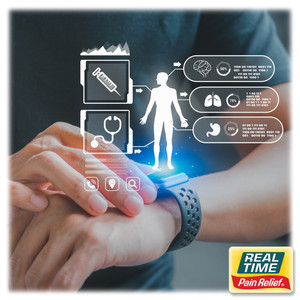4 Reasons Why Dairy May Not Be Right For You
1st Jun 2022
A lot of people think that dairy is a staple in a healthy diet, but the evidence is showing that the opposite might be true. Some researchers believe that dairy could be harmful to your health. We have found 4 reasons why this might be so.
Even though dairy products can come from other animals like goats, sheep, and even camels, most people think of cows when they hear dairy. This is evident because most shelves in Western grocery stores are full of dairy products made from cow's milk.
4 Reasons Why Dairy May Not Be Right For You
#1) May Increase Pain and Inflammation
Dairy products can cause our digestive system to go haywire. And poor digestive health can lead to many issues in the body including an increase in pain and inflammation, which is bad news for anyone dealing with an inflammatory disorder. Consumption of dairy products is known to worsen the symptoms of gout, back pain, chronic fatigue, fibromyalgia, lupus, or arthritis.
#2) Human Digestion Changes with Age
Humans actually lose the ability to properly digest the components in all species milked at the age of natural weaning, which is between the ages of 4-7, when you look at worldwide averages from the World Health Organization. This is because human infants are born needing to be able to properly digest their mother’s milk, and then lose the ability when they begin to eat solid foods regularly and no longer need their mother’s milk for survival.
#3) May Contain Unwanted Additions
There are many other things in cow’s milk that can be bad for a human to ingest:
- Milk contains growth hormones that are meant for a cow’s body rather than a human’s.
- Milk contains proteins and sugars that are hard to digest.
- Antibiotics are used to treat cows if they have an infection, which is common in the environmental conditions that dairy cows are kept in.
- Dairy cows can develop udder infections, causing pus to be collected in the milk. The industry actually allows a percentage of pus to be in the final product of the milk they gather from the cows.
#4) Genetics May Affect Digestion
Cows have two types of genes: A1 and A2. Most conventional cows bred for dairy production in North America are A1 cows. There is speculation that the milk from A1 cows is harder to digest for some people than the milk from A2 cows. However, the conventional system uses milk from A1 cows, mostly black and white Holstein cattle, because they are easier to breed in large numbers to keep up with the high volume of milk consumption.
What Can You Eat Instead?
There are many alternatives to dairy that are easily accessible in your local grocery store. If you like to use milk or cream in your coffee, there are many alternative kinds of milk like almond, rice, soy, oat, etc.
You do not have to be vegan to appreciate the products that are available to substitute cheese in your recipe. Check out the vegan section of your local specialty grocery store for lots of cheese and dairy-free options. There are also many recipes online for making dairy-free sour cream, spicy cheese sauces for burritos, and other things.
Butter can be substituted with oils like avocado, grapeseed, coconut, etc. Oils are better for pan-frying anyway due to their higher smoke point.
Frozen bananas can be blended in a high-powered blender or food processor and topped with fruits, chopped nuts, and dairy-free chocolate sauce as a delicious dessert in the evening.
Often the key to taking something out of your diet is to find new and exciting recipes to try and begin incorporating those into your weekly meal plan. Try looking for recipes that exclude dairy products and see if you are inspired!
For over 20 years, families across the U.S. have turned to Real Time’s lotions and creams for PAIN RELIEF YOU CAN TRUST®. From Lifestyle Essentials, through our Nujuvena line, to Pain Relief Formulas, Real Time has you covered.
Sources:
- The Dairy Free Kitchen by Ashley Adams
- Biochemical Individuality By Roger Williams MD
- http://nutritionfacts.org/
- https://en.wikipedia.org/wiki/Weaning





